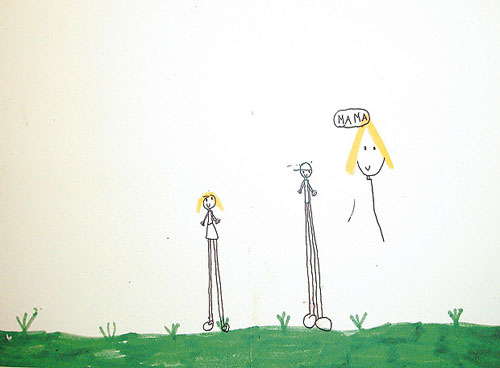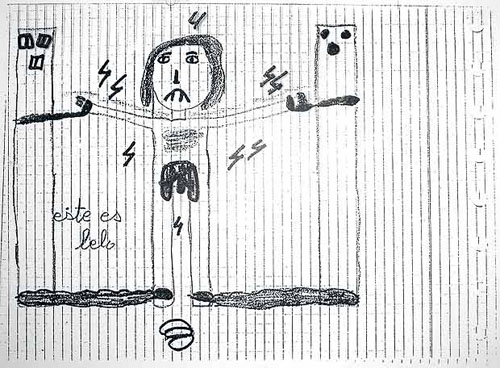Noticia del 7 de Septiembre de 2008
COMENTARIO: Pese a ser una sentencia en Estados Unidos, no deja de ser de relevancia por la dureza de la aplicación. El Tribunal mantuvo la sentencia de 200 años de cárcel a cumplir íntegros sin posibilidad de reducción de condena, libertad condicional, o perdón impuesta a Robert Berger en una corte de Arizona (Estados Unidos), rechazando así su recurso de inconstitucionalidad. El delito cometido consiste en la posesión de 20 imágenes de pornografía infantil que había descargado de un sitio en internet, sin pagar por ninguna de ellas. El condenado no tenía antecedentes penales.
COMENTARIO: Pese a ser una sentencia en Estados Unidos, no deja de ser de relevancia por la dureza de la aplicación. El Tribunal mantuvo la sentencia de 200 años de cárcel a cumplir íntegros sin posibilidad de reducción de condena, libertad condicional, o perdón impuesta a Robert Berger en una corte de Arizona (Estados Unidos), rechazando así su recurso de inconstitucionalidad. El delito cometido consiste en la posesión de 20 imágenes de pornografía infantil que había descargado de un sitio en internet, sin pagar por ninguna de ellas. El condenado no tenía antecedentes penales.
Some members of Arizona's highest court expressed unease, but a 200-year prison sentence imposed on a former Phoenix high school teacher for possessing child pornography has survived a constitutional challenge. The state Supreme Court on Wednesday rejected Morton Robert Berger's appeal that his sentence violated the U.S. Constitution's Eighth Amendment protections against cruel and unusual punishment. A judge in 2004 sentenced the former Cortez High School teacher to consecutive 10-year prison terms on each of 20 convictions for sexual exploitation of a minor. Each of the 20 counts was for possessing computer and printed images of child pornography, and 10 years was the minimum sentence for each count. Arizona law requires that the sentences be served consecutively and that they be served without the possibility of probation, early release or pardon. The state high court said Arizona courts must follow U.S. Supreme Court rulings that only "grossly disproportionate" sentences are prohibited under the Eighth Amendment, with comparisons based on sentences imposed on other crimes in the same state and sentences imposed in other states for the same crime. The penalties imposed on Berger were "severe and unforgiving" but courts must show deference to the Legislature and its policy decisions on criminal sentences, the ruling said. Arizona purposely "severely punishes" possession of child pornography, Justice W. Scott Bales wrote in the ruling. "Criminalizing the possession of child pornography is tied directly to state efforts to deter its production and distribution." The ruling also said it was important Berger was sentenced to 20 10-year terms for having 20 different images involving 15 different child victims, not one 200-year sentence, the ruling noted. Writing separately to partially agree and partially disagree with the majority, Justice Rebecca White Berch said a minimum mandatory sentence of 200 years for possessing 20 images should require additional analysis on whether the sentence is unconstitutionally disproportionate. Berch said the whole sentencing package, not just the per-count minimum, should be considered. "These combined features affect the real-world sentences defendants must serve, and we should not allow these unique features and the resulting sentences to escape review by focusing only on the sentence for one charge," she wrote. Berch said Arizona's sentencing law was the toughest of any state under the circumstances present in Berger's case. In most states, Berger would have been eligible for just a few years in prison and have the possibility of probation or early release, she said. Justice Andrew D. Hurwitz also wrote separately, saying he agreed with Berch that Berger's sentence seemed "unnecessarily harsh" but that it was constitutional under the U.S. Supreme Court's interpretation of the Eighth Amendment. "If I were a legislator, I would be free to find such a long sentence shocking to my conscience and vote for a less Draconian sentencing scheme. But the test for violation of the Constitution is not my personal conscience nor whether a sentence subjectively is bothersome to me," Hurwitz wrote. Chief Justice Ruth V. McGregor, Justice Michael D. Ryan and Hurwitz joined Bales in the majority opinion.









Viniendo de EEUU, un país donde te caen diez años y cien millones de dólares de multa por descargarte del emule la sintonia de una serie de televisión de dibujos animados para tu hijo... No se de que me sorprende.
ResponderEliminarjajajaja ahi Flooding tendría 2000000000000000000000000000000000000000000000000000000000000000000000000000000000000000000000000000000000000000000000000000000000000000000000000000000000000 años de condena
ResponderEliminaren la sentencia pondria directamente como pena = nº infinito
tendría que resucitar miles de veces para cumplir la pena, qué pasada de sentencia.
Ni tan calvo ni tan claro, no? Lo de España es de pena pero esto ya es .. bufff!!
jajaja! si, es muy posible... a saber que se esconde detrás de la maraña de Flooding...
ResponderEliminarel problema como bien dices, es que se debe buscar un punto intermedio.